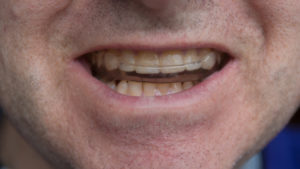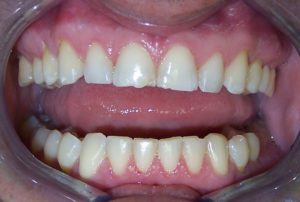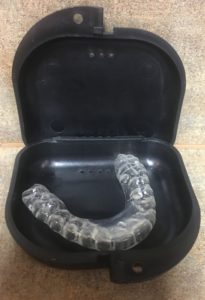Nightguards: What are They, and Why Do I Need to Wear One?
Nightguards, also known as mouthguards, mouthpieces, appliances, and biteguards, are an important part of preventive dentistry. Not everyone needs to wear a nightguard, but we are finding that more and more people do these days.
What is a Nightguard?
A nightguard is a protective appliance worn over the teeth to prevent damage from heavy forces that occur during teeth clenching or grinding. There are many different types of nightguards, made from various materials with different shapes, sizes, and purposes. The most common and most beneficial type of nightguard is a hard acrylic, custom-fitted mouthpiece covering either all of the upper or all of the lower teeth.
Because there are so many different types of nightguards, it is important to follow your dentist’s recommendation when choosing one. For example, someone with headaches and muscle pain from heavy clenching needs a differently-shaped nightguard than someone with problems in the TMJ (jaw joint). Many people find that over-the-counter or homemade nightguards actually increase their muscle tension and frequency of headaches.
What is the Purpose of a Nightguard?
A nightguard serves many different purposes, all of which are important. Not every nightguard performs all of these functions, so talking to your dentist about the specific symptoms you are experiencing is a vital part of finding the right one for you.
Protecting the Teeth
 A nightguard physically separates the teeth with a barrier material. This prevents any abrasive from teeth clenching or grinding on other teeth or dental restorations like crowns. Covering each tooth lowers the risk for cracking and breaking.
A nightguard physically separates the teeth with a barrier material. This prevents any abrasive from teeth clenching or grinding on other teeth or dental restorations like crowns. Covering each tooth lowers the risk for cracking and breaking.
By covering all of the teeth with a single hard appliance, it also redistributes the biting forces so that no single tooth is receiving too much pressure. It “evens out” the bite. The thickness of the nightguard and the separation of the upper and lower jaw it enforces reduces the overall amount of force the facial muscles are able to produce. This means there is less clenching or grinding force absorbed by the teeth underneath a nightguard.
Protecting the Gums
Most people do not realize that clenching or grinding the teeth has a damaging effect on the gums. In response to the harmful forces of teeth clenching and grinding, the gum tissue can “back away” or recede. This is especially noteworthy on a single tooth that receives inappropriate bite forces. It is not unusual for us to see one isolated tooth with gum recession and, upon investigation, find that it hits the opposing tooth harder or at an improper angle as compared with those around it.
The redistribution of forces provided by a well-fitting nightguard protects the gum tissue and prevents further gum recession from bite forces. Certain heavy forces can actually damage the jawbone around a tooth and cause looseness or bite changes. Nightguards prevent this, too!
Reducing Muscle Force
This function is the most important one for our frequent headache sufferers. People who clench or grind their teeth all night tend to have either serious muscle tightness in the face and temples or flat-out pain. As you overwork those muscles all night, they become sore in just the same way as an overworked biceps or quadriceps muscle.
Wearing a nightguard lessens the amount of force these facial and temple muscles are able to produce by preventing complete flexion. You simply cannot generate the same amount of force between the upper and lower jaws if you cannot get the teeth together.
Protecting the Jaw Joints (TMJs)
Heavy clenching and grinding of the teeth damages the jaw joints over time. The TMJs are ball-in-socket type joints, and too much muscle force can drive the ball into the socket, causing damage in the joint. Wearing a nightguard protects the joints by reducing the overall muscle force and preventing excess pressure in the joints.
Who Needs to Wear a Nightguard?
If you are clenching or grinding your teeth at night, your dentist will be able to tell. The heavy forces on the teeth, gums, muscles, and joints leaves signs that are visible or detectable during a dental evaluation. This means we can see that you are clenching or grinding whether you know it or not!
Signs on the Teeth
 Crack lines
Crack lines- Small chips of enamel
- Flat spots called wear facets
- Shortening of the front teeth
- Notching at the gumline called abfractions
- Small gaps or spaces opening between the teeth
Signs on the Gums
- Receding gums
- Isolated gum recession, especially in a sharp “V” shape or notch
Signs in the Facial & Temple Muscles
- Enlargement of the cheek muscles (masseters)
- Enlargement of the muscles in the temple (temporalis)
- Asymmetry (where one side is noticeably larger than the other)
- Pain in facial or temple muscles on clenching the teeth together
Signs in the Joints
- Popping or clicking sounds
- Pain in the joint or ears
- Ringing in the ears
- Locking in the jaw joint (either closed where you cannot open your mouth, or open, where you cannot close your mouth)
Other Signs in the Mouth
- Callous line on the inside of the cheeks
- Scalloped sides of the tongue (also known as “pie crust tongue”)
Once Dr. Ann and Dr. Lauren note any of these signs, they will discuss your areas of risk. If you are at risk for further damage from teeth clenching or grinding, they will probably recommend a nightguard.
What Happens if I Do not Wear a Nightguard?
 If you need a nightguard and do not wear one, your risk for dental problems like cracked teeth and gum recession may increase. The cost to fix the problems caused by heavy grinding or clenching is typically much higher than the cost of a nightguard! For example, the cost of a crown to repair one cracked tooth is usually about twice as much as a nightguard.
If you need a nightguard and do not wear one, your risk for dental problems like cracked teeth and gum recession may increase. The cost to fix the problems caused by heavy grinding or clenching is typically much higher than the cost of a nightguard! For example, the cost of a crown to repair one cracked tooth is usually about twice as much as a nightguard.
The preventive benefits of a nightguard are just too good to overlook. If you think there is a chance that you are clenching or grinding your teeth at night, ask Dr. Ann and Dr. Lauren at your next visit. Preventing the damage from teeth grinding is always the best course of action!
More Questions about Nightguards?
Call Designer Smiles today to schedule a consultation with Dr. Ann and Dr. Lauren. They will assess your specific areas of risk and let you know how much a nightguard will benefit you.
